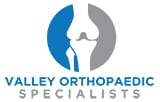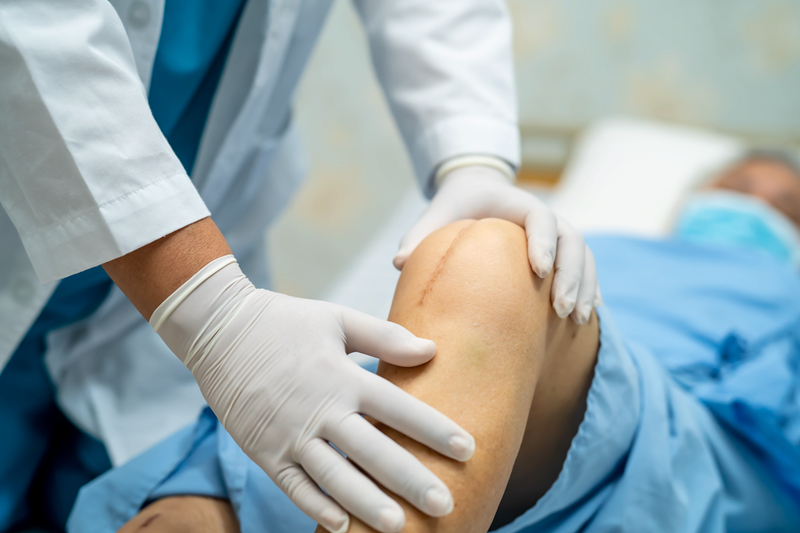Knee problems can significantly impact your daily life, hindering mobility and causing persistent pain. Arthroscopic knee surgery is a minimally invasive procedure designed to diagnose and treat various knee conditions. At Valley Orthopaedic Specialists, we understand the importance of providing effective solutions for knee pain. In this blog, we’ll delve into the success rates of arthroscopic knee surgery, explore common conditions treated with this procedure, and discuss the benefits and recovery process.
Understanding Arthroscopic Knee Surgery
Arthroscopic knee surgery, often referred to as knee arthroscopy, involves using a small camera called an arthroscope to examine and treat issues inside the knee joint. This procedure allows orthopedic surgeons to diagnose and address knee problems with minimal tissue damage compared to traditional open surgery. During the surgery, small incisions are made around the knee, and the arthroscope, along with specialized surgical instruments, is inserted to perform the necessary repairs.
Common Conditions Treated with Arthroscopic Knee Surgery
Arthroscopic knee surgery is versatile and can be used to treat a variety of knee conditions, including:
1. Meniscal Tears: The meniscus is a C-shaped cartilage that acts as a cushion between the thigh bone and shin bone. Meniscal tears are common knee injuries that can cause pain, swelling, and restricted movement. Arthroscopy can be used to trim or repair the torn meniscus.
2. ACL Injuries: The anterior cruciate ligament (ACL) is crucial for knee stability. ACL injuries, often seen in athletes, can lead to knee instability and pain. Arthroscopic surgery can reconstruct a torn ACL using grafts.
3. Cartilage Damage: Damage to the articular cartilage, which covers the ends of bones in the knee joint, can lead to pain and limited mobility. Arthroscopy can smooth or repair damaged cartilage, promoting better joint function.
4. Synovitis: Inflammation of the synovial membrane, known as synovitis, can cause knee pain and swelling. Arthroscopic surgery can remove inflamed synovial tissue to alleviate symptoms.
5. Loose Bodies: Fragments of bone or cartilage that float within the knee joint can cause pain and joint locking. Arthroscopy can remove these loose bodies, improving knee function.
Success Rates and Benefits
The success of arthroscopic knee surgery is influenced by various factors such as the specific condition being treated, the patient’s overall health, and their commitment to postoperative rehabilitation. Generally, arthroscopic knee surgery has high success rates, providing significant pain relief and improved knee function.
A primary advantage of arthroscopic knee surgery is its minimally invasive nature. The use of small incisions results in less tissue damage, which in turn leads to reduced pain and shorter recovery times compared to traditional open surgery. Additionally, the smaller incisions decrease the risk of infection and other complications, making the procedure safer for patients.
Arthroscopy allows for precise, targeted treatment of specific knee issues. The use of an arthroscope provides a clear and detailed view of the inside of the knee joint, facilitating accurate diagnosis and effective treatment. This precision contributes to the overall success of the surgery.
Furthermore, patients undergoing arthroscopic knee surgery typically experience faster recovery times. Many individuals can return to their normal activities within a few weeks, depending on the complexity of the procedure and their adherence to rehabilitation protocols.
Recovery Process and Rehabilitation
The recovery process after arthroscopic knee surgery varies based on the specific procedure performed and the patient’s overall health. However, there are common elements most patients can expect during their recovery journey.
Immediately following surgery, patients are advised to rest and elevate the affected leg to reduce swelling. Ice packs may be used to manage pain and inflammation, and pain medications, along with anti-inflammatory drugs, are often prescribed to alleviate discomfort.
Physical therapy plays a crucial role in the recovery process. A tailored rehabilitation program is essential for restoring knee strength, flexibility, and function. Initially, physical therapy focuses on gentle range-of-motion exercises, gradually progressing to strength and stability exercises as the knee heals.
Patients are encouraged to gradually resume their normal activities. It is important to avoid high-impact activities and sports until the knee has fully healed and regained strength. Strict adherence to the rehabilitation plan is key to achieving the best possible outcomes.
Regular follow-up appointments with the orthopedic surgeon are necessary to monitor progress and address any concerns. These appointments allow the surgeon to evaluate the healing process and provide guidance on advancing physical activities safely.
Long-Term Outcomes
The long-term success of arthroscopic knee surgery depends on several factors, including the extent of the initial injury, the effectiveness of the surgical repair, and the patient’s dedication to rehabilitation. Most patients experience significant improvements in knee function and pain relief, allowing them to return to their daily activities and sports.
For athletes who undergo arthroscopic knee surgery, particularly for ACL reconstruction, successful rehabilitation often means a return to sports. The timeline for returning to sports can vary, typically ranging from six months to a year, depending on the individual’s progress and the nature of the sport.
A successful arthroscopic surgery, combined with proper rehabilitation, can also help prevent further knee injuries. Strengthening the muscles around the knee and improving joint stability reduces the risk of re-injury, contributing to long-term knee health.
Ultimately, the goal of arthroscopic knee surgery for many patients is to improve their quality of life. By alleviating pain and restoring knee function, the procedure enables patients to engage in activities they enjoy without discomfort. At Valley Orthopaedic Specialists, we are dedicated to providing comprehensive care to ensure our patients achieve the best possible outcomes. If you are experiencing knee pain or considering arthroscopic knee surgery, contact us today for a consultation. Our team will work with you to develop a personalized treatment plan aimed at restoring your knee health and enhancing your quality of life.

